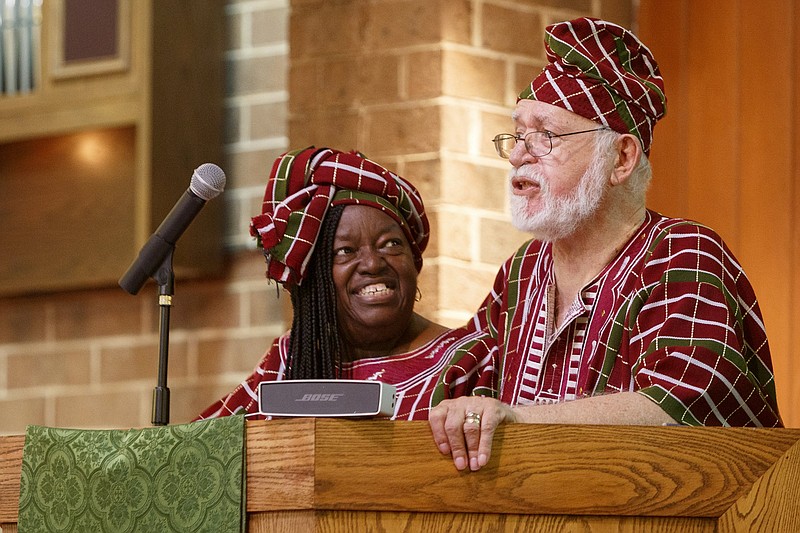Chaplains, notaries public, judges and others who don't want to perform a marriage ceremony in Tennessee don't have to under a law signed by Gov. Bill Lee.
Proponents said that law, signed Wednesday, codified what had always been assumed — and that among other benefits, it allowed those authorized to solemnize a marriage to decide if they want to do so without fear of being sued.
But to LGBTQ+ activists, the law has discriminatory potential, while other critics said it was a waste of time or courted a lawsuit.
In Tennessee, marriages require getting a license from a county clerk — a process apparently unaffected by the new law — but they also generally need to be solemnized by clergy or one of a broad range of public officials.
Clergy were already protected by the First Amendment of the Constitution from having to solemnize weddings they didn't want to, said Chris Sanders, the executive director of the Tennessee Equality Project, an LGBTQ+ advocacy group.
Public officials, however, were a different story, he said, particularly after the U.S. Supreme Court in 2015 ruled in Obergefell v. Hodges that states must recognize same-sex marriages.
"Here's the things that a lot of people miss," Sanders said. "Let's say you're a county commissioner in Hamilton County. You can do weddings. Before this law, the advice was, 'OK, you can do them. But if you do them, you have to take all comers. You can't discriminate.'
"That's the thing. And that's why a lot of county commissioners stopped doing weddings around the state after Obergefell because they were advised that if they did weddings for different-sex couples, they would need to not turn away same-sex couples."
As originally proposed, House Bill 878 said someone would not have to solemnize a marriage because of their religious belief or conscience. In a committee meeting last year, a pastor said the wording would have implications for his church's insurance, and lawmakers amended the bill to simply say, "A person shall not be required to solemnize a marriage."
Civil rights advocates have worried the legislation could open the door not just to discrimination against same-sex couples but also interracial and interfaith couples.
Last year the house sponsor, state Rep. Monty Fritts, R-Kingston, said the proposed law infringed on no one's rights.
"This is a freedom bill," he said in a committee meeting.
In an email Thursday, his legislative assistant, Nicole Ussery, said anyone authorized to solemnize a marriage should be able to decide if they want to without fear of being sued by someone who disagrees with that choice.
The bill also might help put a check on "predatory marriages" — in which someone marries an elderly person with the intent of stealing their wealth, she said.
And Ussery said the bill does not target the LGBTQ+ community.
"While there may be those that choose not to solemnize same-sex marriages, there is nothing in the statute that specifically addresses that type of marriage," she wrote.
(READ MORE: Tennessee foster care agency says key LGBTQ+ policy under review)
In a committee meeting in February, another sponsor, state Sen. Mark Pody, R-Lebanon, said the law would clarify in the state legal code what had previously been assumed.
"We just assume that somebody did not have to," Pody said, on the question of whether someone would have to solemnize a marriage when asked. "However, this makes it clear that if somebody comes to, like myself — I performed a wedding yesterday — if I didn't want to perform that wedding, I could have said no."
State Sen. London Lamar, D-Memphis, said in the meeting that these sorts of bills are often introduced to attack certain groups.
"Lets just try not to push legislation to single out groups," she said. "We're better than that as a legislature. I just want to put that out there."
Travis Meier, a Lutheran pastor in Nashville, said in the February meeting the bill was vague, redundant — since he already didn't have to solemnize marriages he didn't want to — and potentially a waste of taxpayer dollars.
"I see this bill as a law that is setting a trap for legal confrontations down the line," he said.
In a statement texted through a spokesperson, Sanders, of the Tennessee Equality project, said his organization "would be glad to work with organizations seeking to bring a legal challenge to the law."
Contact Andrew Schwartz at aschwartz@timesfreepress.com or 423-757-6431.
